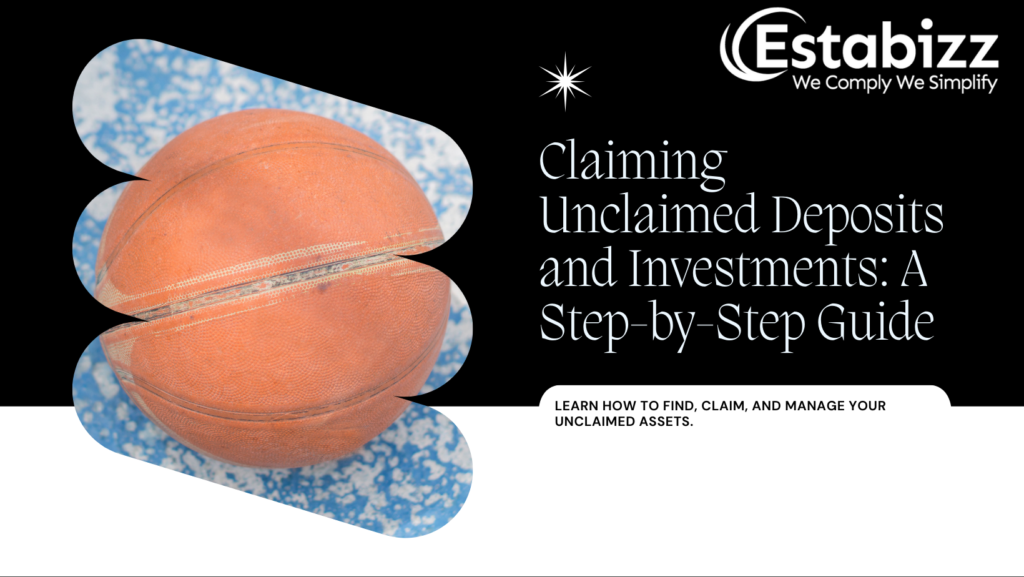Comprehensive Guide on Claiming Unclaimed Deposits and Investments
Unclaimed investments and deposits are a common financial issue in India as of March 2023. About ₹42,272 crore sits as unclaimed deposits in banks, and approximately ₹2,637.94 crore as unclaimed dividends and units are stowed away with mutual fund houses. This article takes a detailed approach to understanding this concern and outlines a step-by-step guide on how to claim these unclaimed deposits and investments.

Exploring the Causes of Unclaimed Deposits and Investments
Several reasons contribute to the high volume of unclaimed assets. Banks often have unclaimed deposits due to customers failing to close unused savings or current accounts or not filing redemption claims for matured fixed deposits. Additionally, potential claimants like nominees or legal heirs may not step forth to claim these assets.
Investors often refrain from sharing complete investment details with their families, leading to significant challenges in identifying and retrieving such investments during emergencies. Jain elaborates on other reasons for unclaimed assets: change of address without updating investment companies, alteration of maiden name post-marriage, and loss of investment papers due to natural disasters.
How to Identify Unclaimed Deposits, Investments, or Insurance?
The process to identify unclaimed assets varies depending on the type of investment. For unclaimed bank deposits, accountholders can use the UDGAM portal introduced by the Reserve Bank of India (RBI). Shares and dividends can be checked on the Investor Education and Protection Fund Authority’s (IEPF) website. However, there isn’t a centralized database for unclaimed insurance policy proceeds. Investors must individually visit insurance companies’ websites to verify any unclaimed maturity proceeds.
Essential Documents for Claiming
Investors or their legal heirs need to provide their name, PAN Card details, and respective document of the unclaimed asset to initiate the claim process. Other essentials include the folio number, policy number, name, and address of the investor or the deceased.
What Steps to Follow?
Navigating this landscape involves a series of actions, starting with a thorough examination of personal records and files. Indians often store significant documents at home, sometimes dismissing others as trivial. However, it’s important not to overlook any papers, as even an unassuming document could serve a purpose in claiming an unclaimed investment.
Chartered accountants and financial advisors can also provide crucial support, as they often have insights into their clients’ or even their parents’ investments from assisting with their tax filings.
If the above steps offer little assistance, it might be helpful to visit the bank branch where the parents’ accounts possibly exist. In such a scenario, the children, being legal claimants, can inquire about any existing accounts their parents might have with the banks.
Once details about the parents’ investment are discovered, the next course of action involves writing to the respective companies to understand the detailed claiming procedures. Legal heirs must submit their KYC documents, deceased investor’s death certificate, and proof of relationship with the deceased, which may include the Legal Heir Certificate, Family Tree, or Surviving Member Certificate.
In some cases involving high-value shares or deposits, the concerned bodies may require the legal heirs to obtain the Succession Certificate or Probate from the court if the deceased left a will.
For assets with nominated beneficiaries, the claiming process is more straightforward. The nominee can acquire the investments promptly by providing basic documents.
In conclusion, understanding and actioning the claiming process is key to retrieving unclaimed deposits and investments. Leveraging technology and advisory platforms can further simplify this process, ultimately contributing to a significant reduction in unclaimed assets in India’s financial landscape. It is also worth noting the thresholds set by banks, mutual funds, and insurance companies – depending on the amount to claim, a succession certificate might be necessitated. Thus, keeping a thorough record of your investments, updating changes in personal information and effectively communicating these details with your heirs can prevent the buildup of unclaimed assets.




